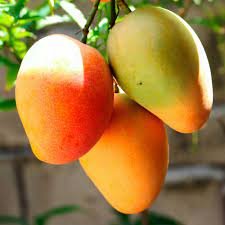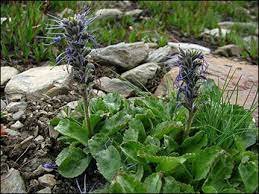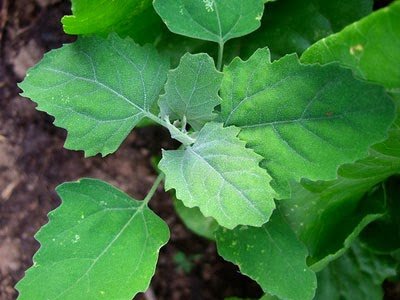What is Phosphate Rich Organic Manure (PROM)?
Phosphate Rich Organic Manure (PROM) is an organic fertilizer that combines organic manure with rock phosphate. It serves as a dual-purpose soil amendment, providing both organic matter and phosphorus to the soil. PROM is designed to enhance the availability of phosphorus, which is often limited in many soils, while also improving soil health through the addition of organic matter.
Types of PROM
- Basic PROM:
- This type is made by mixing organic manure, such as compost or farmyard manure, with finely ground rock phosphate. The mixture undergoes a composting process to ensure the phosphorus becomes more available to plants.
- Enriched PROM:
- This variant includes additional microbial inoculants or phosphate-solubilizing bacteria to further enhance the solubilization of phosphorus. It may also contain other organic additives to improve its overall nutrient profile.
Characteristics of PROM
- Appearance: Dark brown to black, granular or powdery texture.
- Odor: Earthy smell, indicating proper decomposition.
- Moisture Content: Typically around 25-30%, which helps in easy application and nutrient release.
- pH: Generally neutral to slightly acidic (6.0 to 7.0), suitable for most crops.
- Organic Matter: High organic matter content, which improves soil structure and fertility.
- Phosphorus Availability: Contains a higher proportion of available phosphorus compared to regular organic manure.
Nutrient Value per 1 kg
The nutrient content of PROM can vary based on the raw materials used and the composting process. On average, the nutrient values per 1 kg of PROM are:
- Nitrogen (N): 1.0% – 2.0%
- Phosphorus (P2O5): 8.0% – 12.0%
- Potassium (K2O): 1.0% – 2.0%
- Calcium (Ca): 4.0% – 8.0%
- Magnesium (Mg): 0.5% – 1.0%
- Micronutrients: Trace amounts of essential micronutrients such as zinc (Zn), copper (Cu), iron (Fe), and manganese (Mn).
Relevance and Importance
- Phosphorus Supply: PROM is an excellent source of phosphorus, an essential nutrient for plant growth, particularly important for root development and energy transfer.
- Soil Health Improvement: The organic matter in PROM improves soil structure, water retention, and microbial activity, enhancing overall soil health.
- Sustainable Agriculture: Reduces the reliance on chemical fertilizers, promoting sustainable and organic farming practices.
- Environmental Protection: Minimizes nutrient runoff and leaching, reducing the risk of water pollution and eutrophication.
- Cost-Effectiveness: Provides a cost-effective alternative to synthetic phosphorus fertilizers.
Use and Benefits
- Enhanced Nutrient Availability: PROM provides a steady supply of phosphorus, improving nutrient uptake and plant growth.
- Improved Soil Structure: The organic matter in PROM enhances soil texture, aeration, and water-holding capacity.
- Disease Suppression: Promotes a healthy soil microbiome, which can suppress soil-borne diseases and pests.
- Stress Tolerance: Helps plants withstand environmental stresses such as drought and poor soil conditions.
- Increased Crop Yields: Promotes vigorous plant growth, leading to higher yields and improved quality of produce.
Crops Benefiting from PROM
PROM can be used for a wide variety of crops, including:
- Vegetables: Tomatoes, potatoes, carrots, cucumbers, peppers, lettuce.
- Application Stage: Before planting, mix PROM into the soil to improve fertility. Apply as a top dressing during the growing season to boost nutrient availability.
- Fruits: Apples, grapes, strawberries, citrus fruits.
- Application Stage: Apply PROM in the planting hole during planting and as a mulch around the base of the plants during the growing season.
- Cereals: Wheat, rice, maize, barley, oats.
- Application Stage: Incorporate PROM into the soil before sowing seeds to enhance soil fertility and structure.
- Legumes: Soybeans, peas, lentils, chickpeas, beans.
- Application Stage: Mix PROM into the soil before planting and use as a top dressing to maintain nutrient levels during the growing season.
- Root Crops: Radishes, beets, turnips, carrots.
- Application Stage: Add PROM to the planting beds before sowing seeds to improve soil structure and nutrient content.
- Leafy Greens: Spinach, kale, cabbage, lettuce.
- Application Stage: Apply PROM to the soil before planting and as a top dressing during the growing season to provide a steady nutrient supply.
Benefits at Different Crop Stages
- Germination and Early Growth: Enhanced root development and early establishment due to improved phosphorus availability and organic matter content.
- Vegetative Stage: Improved plant vigor and growth, leading to robust plant development and increased resistance to stress.
- Reproductive Stage: Better flowering and fruit set, resulting in higher yields and improved quality of the produce.
Conclusion
Phosphate Rich Organic Manure (PROM) is a valuable resource for sustainable agriculture, offering numerous benefits such as enhanced soil fertility, improved plant growth, and reduced reliance on chemical fertilizers. By providing a balanced supply of organic matter and phosphorus, PROM supports healthy soil ecosystems and promotes sustainable farming practices. Integrating PROM into crop management practices can lead to healthier plants, improved soil health, and a more sustainable agricultural system.









